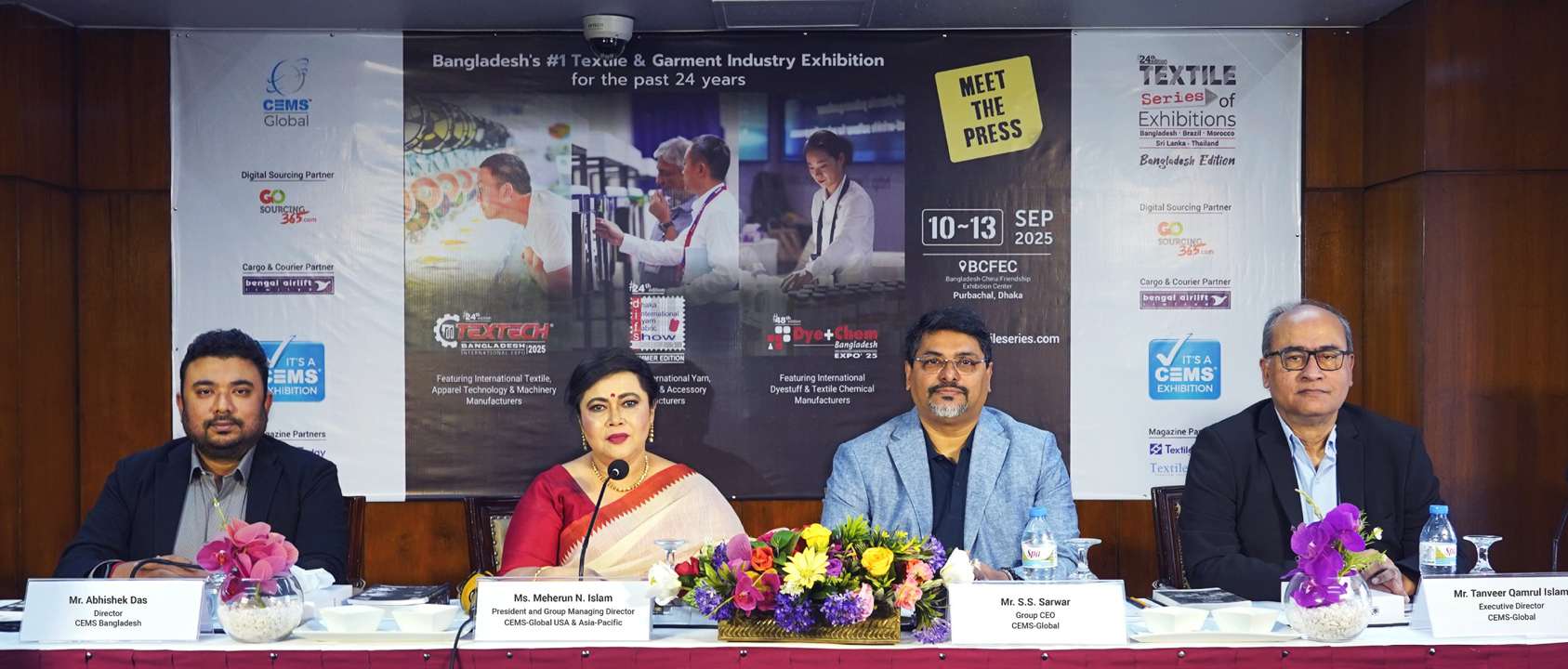Bangladesh must urgently prepare and engage in negotiations with its major export destinations as the country’s readymade garment (RMG) sector faces the imminent loss of duty-free market access following its graduation from the Least Developed Country (LDC) category, experts and exporters have warned.
They said that alongside preparations for graduation, both the government and private sector should jointly pursue either a deferment of graduation or an extension of the post-LDC transition period by six years, until 2032.
Bangladesh is scheduled to graduate to developing country status in November 2026.
Under a decision taken at the World Trade Organization’s 2023 Ministerial Conference in Abu Dhabi, LDCs will retain their trade preferences for three additional years after graduation.
Once that grace period expires, Bangladeshi apparel will face steep tariffs ranging between 9 per cent and 20 per cent.
Duties are expected to be around 12 per cent in the EU, 11.5 per cent in the UK, 16.2 per cent in Canada, 9 per cent in Japan, 20 per cent in India and 6.7 per cent in China.
Apparel makers are therefore seeking a delay to graduation or, at the very least, an extension of duty-free trade benefits.
The EU, UK, Canada and Australia will allow Bangladesh to retain current market preferences until 2029, providing a three-year grace period, but exporters fear that will not be sufficient to maintain competitiveness.
Research and Policy Integration for Development (RAPID) chairman M A Razzaque said that time was running out for Bangladesh.
He said that the country needed to engage with the European Union without delay in order to secure an exemption from the safeguard clause, which, if not removed, could prevent garments from receiving duty benefits even under the GSP+ scheme after graduation.
Razzaque explained that the safeguard clause, which was currently waived for LDCs, continued to exist under the EU’s GSP framework, including the new 10-year regime that was expected to take effect in 2028.
He mentioned that the withdrawal of the clause would require negotiations within the next six to nine months, since regulatory changes in the EU demanded lengthy procedures and consensus from all member states.
The EU is Bangladesh’s largest export destination.
According to Eurostat data, Bangladesh’s RMG exports to the EU rose from €11.54 billion in 2015 to €18.28 billion in 2024, a growth of 58.45 per cent.
However, rivals such as Vietnam and China are expanding their share in these markets, often benefiting from preferential trade agreements.
By 2029, Bangladesh’s RMG will face a 12 per cent duty in the EU, while Vietnam’s exports will enjoy zero tariffs under its free trade agreement with the bloc.
Canada also poses risks. Bangladesh shipped garments worth $1.41 billion there in 2024, but Vietnam’s participation in the Comprehensive and Progressive Agreement for Trans-Pacific Partnership (CPTPP) threatens to erode Bangladesh’s competitiveness.
According to Export Promotion Bureau data, Bangladesh earned $4.34 billion from RMG exports to the UK, $1.18 billion to Japan, $813.62 million to Australia and $644.24 million to India in the financial year 2024-25.
Industry insiders warn that without preferential access, Bangladesh could lose market share.
‘Business will surely be affected if local garments face duty after graduation,’ said SM Khaled, managing director of Snowtex Apparels.
He said that orders would shift to other destinations, reducing demand for Bangladeshi products.
Bangladesh Garment Manufacturers and Exporters Association (BGMEA) president Mahmud Hasan Khan echoed the concerns raised by others and urged that duty benefits should continue until 2032.
He explained that preparations were needed on two levels: at the national level, which included improving infrastructure, enhancing port efficiency and resolving energy supply issues, and at the factory level, which involved boosting productivity and diversifying products.
He admitted that securing an extension might be challenging because of Bangladesh’s position as the world’s second-largest garment exporter and the size of its economy.
BGMEA president pointed out that whenever Bangladesh requested the withdrawal of safeguard clauses, the European Union was likely to attach conditions relating to labour and human rights compliance, for which the country would require additional time.
Former BGMEA president Faruque Hassan underlined the importance of diversifying both products and markets.
He observed that factories were increasingly producing value-added items, particularly garments made from man-made fibres, but he explained that such ventures required large-scale investment.
He therefore called for government support in the form of low-cost financing and funds for machinery to build backward linkage industries.
Sector leaders also underlined the urgency of Bangladesh signing free trade agreements with key markets and pursuing bilateral arrangements in order to maintain duty-free access, attract foreign direct investment and protect export growth.
They said that Bangladesh had perhaps benefited more than any other country from LDC trade privileges, but they warned that time was running out and that, without swift action, the country risked losing its competitive advantage in the global garment trade.
BGMEA president further remarked that the private sector and the government would have to coordinate their strategies if the country was to navigate the graduation process successfully, safeguard its markets and ensure the long-term sustainability of the garment industry.





















